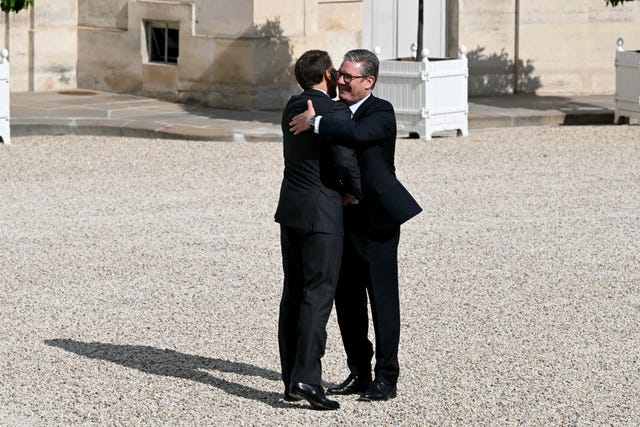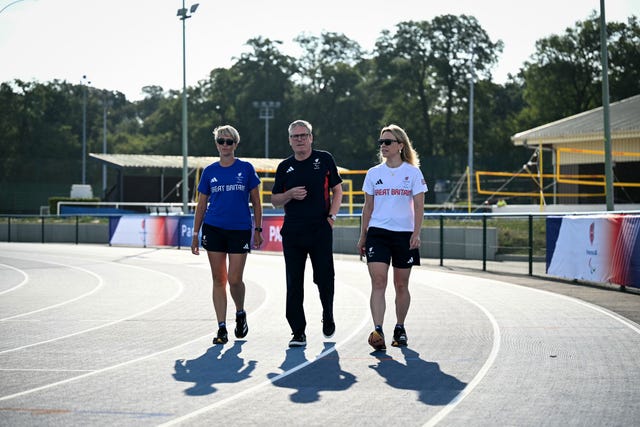Sir Keir Starmer has said he discussed his plans to reset relations with France and the European Union as a whole during talks with French President Emmanuel Macron in Paris.
The Prime Minister held talks with Mr Macron at the Elysee Palace after meeting some of Team GB’s Paralympic athletes on Thursday morning.

A Downing Street spokesperson said: “The leaders reflected on the success of the European Political Community meeting, held at Blenheim Palace last month, and agreed on the importance of further strengthening and broadening the close relationship between the UK and France in the coming months.”
The Prime Minister also welcomed the joint action between the UK and France to tackle small boat crossings and he and Mr Macron agreed to do more together to dismantle smuggling routes further upstream and increase intelligence sharing, the spokesperson said.
Sir Keir and Mr Macron were among the audience at the Paralympic Games opening ceremony in the French capital on Wednesday evening.
The Prime Minister’s visit to Paris follows talks in Berlin with German Chancellor Olaf Scholz in a sign of his desire to seek closer relations with key figures in the EU.
On the first leg of his trip, Sir Keir said he was not “reversing Brexit” as he set out plans for a new treaty with Germany – including “deeper links” in several areas.
He agreed that a deal with Germany would be in place by the end of the year following talks with Mr Scholz and also noted it was a “once-in-a-generation” opportunity.
The two countries also agreed to develop a “joint action plan to tackle illegal migration”.
An agreement on youth mobility has been suggested by Brussels and could be a key demand in any negotiations.
That could be seen as a step towards the restoration of free movement and Sir Keir said he did not have plans for a youth mobility deal, and he had “clear red lines” on the future relationship with the EU.

Miguel Berger told BBC Radio 4’s Today programme: “There are many misunderstandings about what youth mobility really means.
“It is not freedom of movement, it has nothing to do with migration.
“It means that young people, who are really those who have most lost because of Brexit, that they have the possibility to come to the European Union, to come to the United Kingdom, for a limited amount of time, and then they will leave.
“So, it’s enhancing the possibilities for young people.
“That’s what we want. And it’s not only Germany, I can tell you all the 27 in the European Union want to enhance that.”






